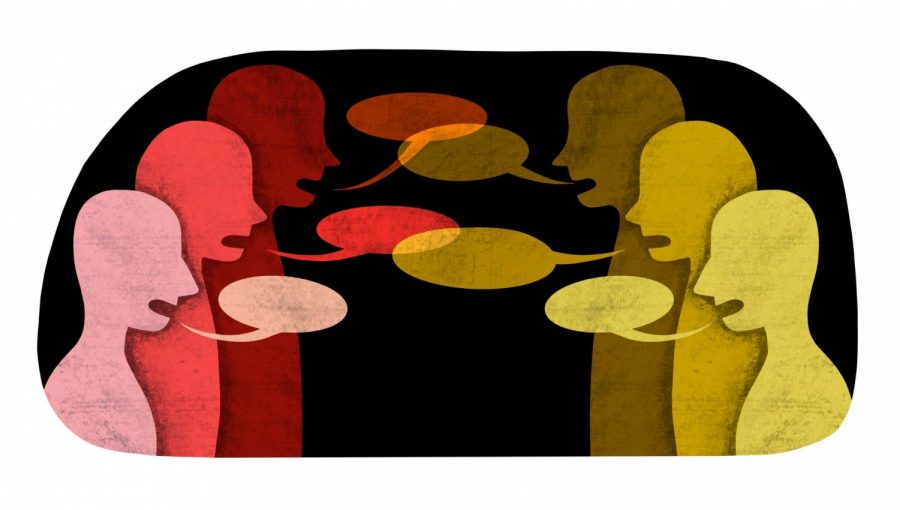I’ve never written for a school newspaper before, but I believed it to be common knowledge that these papers tend to cover highly localized stories — stories exclusive to their campuses and communities that other, less dedicated channels, would be less likely to cover. Of course these papers don’t cover major national stories without some sort of local tie-in. A simple glance at the Nation and World News sections would make that apparent. However, the authors of a recent op-ed do not seem to gloss this reality as they take the absence of coverage in the Daily on antisemitic attacks in Pennsylvania, California, and Texas as the Minnesota Daily condoning these horrific acts.
To emphasize what they see as a lack of coverage, the authors of the piece wrote about how the Daily has covered acts of violence against other minority groups. They cite an article about anti Asian Americans and Pacific Islanders (AAPI) violence in Atlanta, which is specifically about how the Asian and Asian-American communities at the University of Minnesota and in the Twin Cities had been responding. Also, an article about the 2019 Christchurch shootings is more closely about how Muslim students and Muslims in the greater community experienced both fear and support. Finally, there are the articles about the Minneapolis Police Department murder of George Floyd and the continued impact it and other acts of police brutality still undeniably have on campus and the surrounding areas. I believe that the Daily has not specifically covered an antisemitic incident since 2017 because that is the last time there has been an anti-semitic incident on campus that was publicized to the student body over social media.
The most egregious example of misrepresented evidence against the Daily is citing how an opinion piece urging students to vote ‘no’ against the Minnesota Hillel proposed referendum to adopt the controversial International Holocaust Remembrance Alliance (IHRA) definition of antisemitism was allowed to run in the paper. It was conveniently left out how the Daily also ran two opinion pieces by Jewish students that urged the student body to vote ‘yes’ on the proposed referendum, which means the Daily actually did provide space for Jewish voices. The piece advocating for voting ‘no’ was also written by “a group of Jewish and allied” community members. Ultimately, I think this comes down to the conflation of Jewish students and the state of Israel. It’s also come to the point where I must broach the most intimidating of all topics: the Israel-Palestine conflict.
All of the authors of the op-ed claiming the Daily marginalizes Jewish students are board members of the University’s Hillel chapter. The piece they decried as antisemitic took a stance against Hillel’s proposed referendum about the adoption of the IHRA definition, which is controversial for its precedent in censoring and silencing criticism about the state of Israel. Additionally, the lead author of the IHRA definition has said it should not be used as a campus guide and that it even distracts from different and better ways of combating antisemitism.
For context, I am a Jew-ish student (secular, still Semitic) who does not in any way support the violence and settler colonialism to which the state of Israel subjects Palestinians. I do not feel comfortable attending Hillel events anymore out of fear I’ll be accused of being antisemitic because my views do not align with how the U’s Hillel claims Jewish students ought to see. After Hillel’s campaigning last Spring that voting ‘no’ on a policy that does more to protect Zionist speech than Jewish students on campus is antisemitic, I feel less safe on campus to talk freely about what is, according to my values, one of the largest human rights violations in the world right now. I worry that this new culture of fear, at best, staunches all potential conversations and dialogues about a complex but vitally important issue and, at worst, directly targets and silences Palestinian and anti-Zionist students.
The rest of their op-ed contains thinly veiled barbs at the Students for Justice in Palestine group for daring to hold events while also holding values that clash with those held by Hillel. They also come for some pieces by a Daily columnist, who is a Palestinian-American and periodically writes about her personal experiences and opinions surrounding the conflict and how it relates to certain University policies. Columnists are individual writers who do not always 100% reflect the biases and stances of a newspaper, and I’m failing to see what the authors of the op-ed wish to see happen except perhaps censor future content from this author? Or perhaps require there to be pieces run that are diametrically opposed to hers?
I’ve tried to write as tactfully and sensitively as possible, but it is quite literally impossible to present an unproblematic stance that would not ruffle any feathers. This is why it is important to foster dialogues and conversations about the conflict, to encourage research, and not to “just trust me” and disregard anything contradictory as hate speech. The fact that antisemitism exists and persists on campus and in society at large is undeniable. But after scouring the paper’s archive, I feel confident in saying the Hillel board members’ dismay at the Daily is misdirected. Finally, I would like to raise the question of if their issue lies with the perception of feeling underrepresented in the Daily or if it perhaps lies with the Daily also providing space for Palestinian and anti-Zionist voices?
Lucy Cohen is a fourth-year student studying English at the University of Minnesota.
This article has been edited for grammar and clarity.



















Jonny Perez
Mar 8, 2022 at 3:16 pm
Bravo to the Hillel students for calling out this huge blind-spot at the Daily. Jewish students are often harassed simply because they are Jews who support the State of Israel. Support for the nation state of the Jewish People does not equal endorsement of any particular Israeli policy or political party, or of the actions of rogue actors in Israel who engage in illegal acts against Palestinians–any more than belief in American ideals is equivalent to endorsing the bigotry or the anti-Democratic actions of some Americans. Israel is a vibrant democracy and a diverse society, with its share of rogues and bigots, like any country.
A Gopher
Feb 25, 2022 at 11:02 am
The MNDaily is a far-left, openly-bigoted rag. Just ignore it so it can finally die a silent death.
GOGOPHERS
Feb 23, 2022 at 1:04 pm
Ms. Cohen argues that “… the Daily has not specifically covered an antisemitic incident since 2017 because that is the last time there has been an anti-semitic incident on campus that was publicized to the student body over social media.” This talks past the authors of other piece. Previously in this article, Ms. Cohen admits that a myriad of other national stories about harm to different minorities have been written about in the Daily. Pieces pertaining to these national events, as she points out, focused on the response from UMN community members for purposes of MNDaily content. Thus, the fact that there have been no on campus anti-semitic events that have been publicized on social media, even if true, is irrelevant in a discussion of MNDaily coverage of antisemitism more broadly. There have been a plethora of highly publicized, antisemitic events in other parts of the nation that Jewish community members and other members of the UMN community have reacted to and been affected by. The Daily easily could have inquired more into Jewish community members’ responses to such events in order to publicize them. It would not have taken much work either, as Jewish organizations on campus have released statements on social media regarding such events.